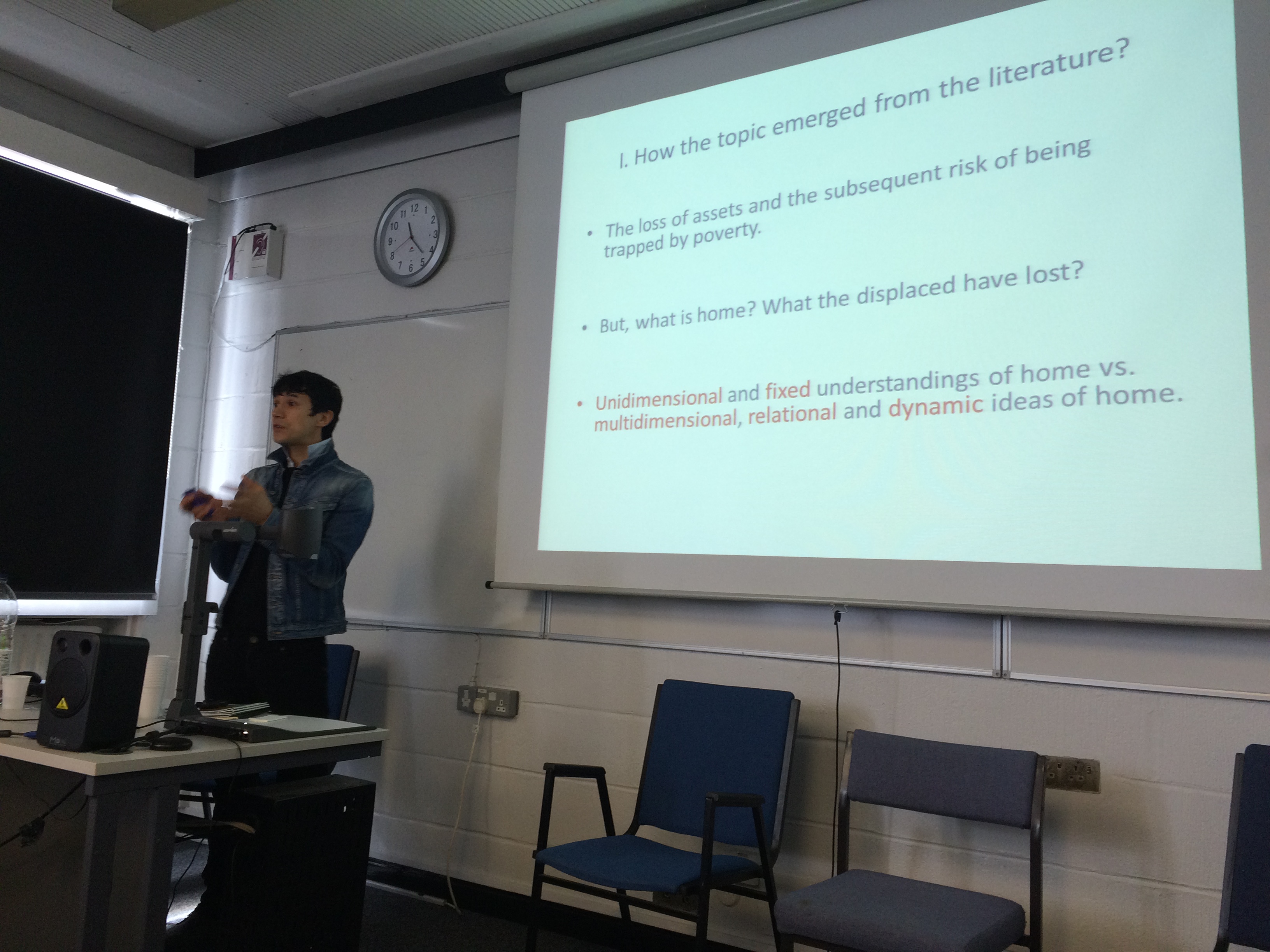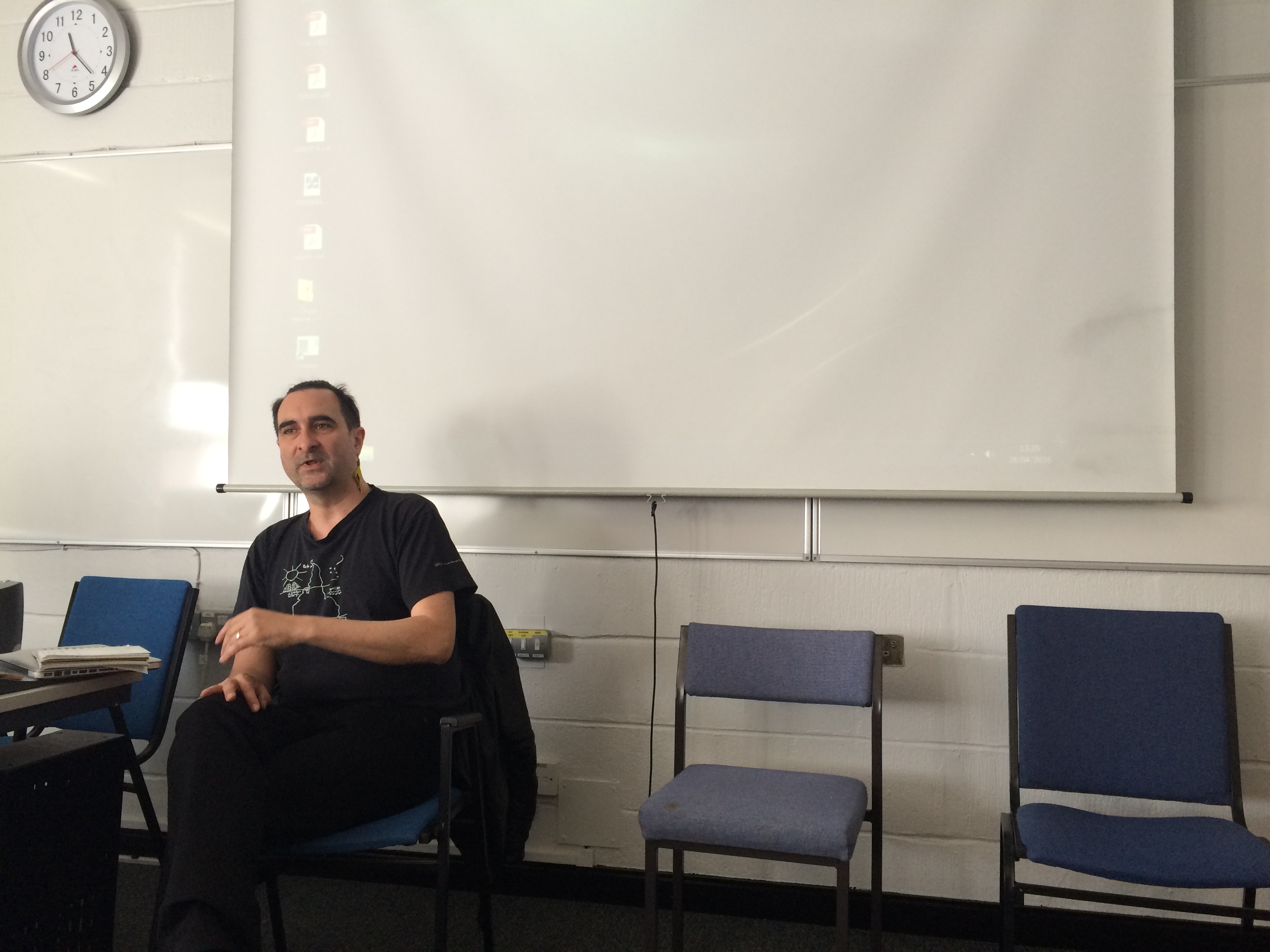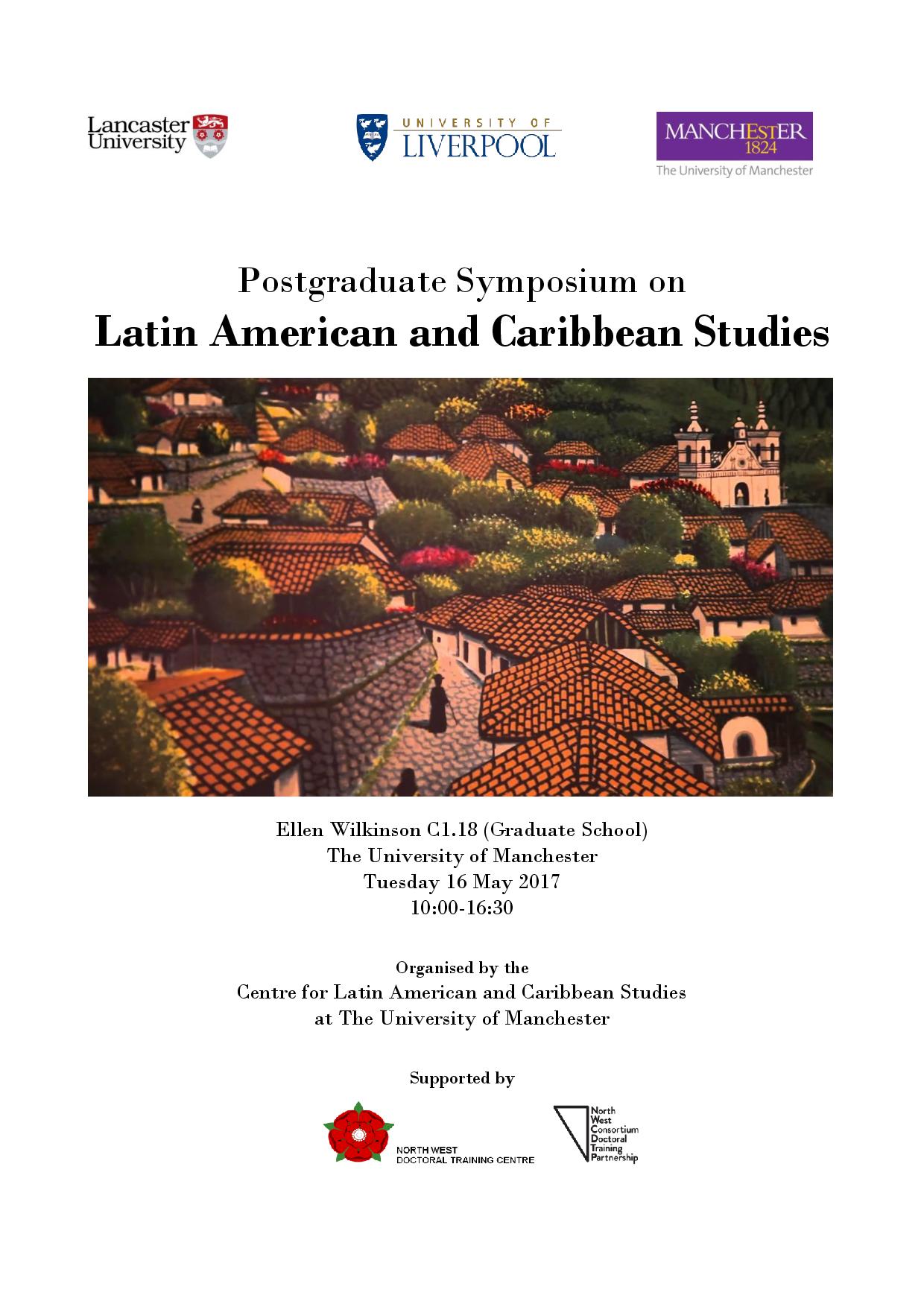
On 26 April, CLACS organised a symposium for PhD students working in Latin American and Caribbean Studies at the Universities of Manchester and Liverpool. The event was funded by the North West Doctoral Training Centre. The event built on previous symposia organised in Manchester and provided PhD students with the opportunity to present papers on their research in a friendly and constructive environment, and to get feedback from peers and staff.
Linda Avendano (HCRI) kicked off the symposium with a presentation on child soldiers and miners in Colombia. Linda discussed the current academic interpretation of ‘child soldiering’ and its implications in terms of human rights violations and policy interventions. She argued for a wider comprehension of the multiple roles performed by children in current conflicts and outlined a theoretical framework that can help address gaps in theorising and practice.
Carole Myers (SALC) discussed elective cosmetic rhinoplasty in contemporary Brazilian women, focusing on the appropriation of cultural influences and their significance in contemporary Brazilian society.
Luis Eduardo Pérez Murcia (SEED) shared the results of his ethnographic work among displaced people in Colombia. He explained the multiple ways in which they construct narratives of home that are crucially shaped by the experiences of conflict and Displacement.
Nicola Astudillo-Jones (SALC) gave the first of two presentations dealing with cinema. She showed how British spectators of Latin American films at Manchester’s Viva Festival perceive Latin America-ness in terms of imagined cosmopolitan communities.
Nicola Runciman (SALC) continued with the topic of cinema, but moved from reception to film analysis, examining the narrative, aesthetic and socio-political functions of the Chilean landscape as it emerges in two recent films: El año del tigre (Sebastián Lelio, 2011) and Matar a un hombre (Alejandro Fernández Almendras, 2014). Nicola demonstrated how these films engage with nationally specific concerns about the social order while also articulating a troubling dimension of the body’s relationship to the external world, a dimension which connects the particular and the universal.
After lunch, Dr. Jon Beasley-Murray (University of British Columbia) gave a keynote talk on Latin American literature and infrapolitics as part of the day, entitled “What’s the Use of Literature? Machinery and Mechanism in the Latin American Canon”.

The afternoon session was devoted to literature. María Montt Strabucchi (SALC) explored Colombian author Santiago Gamboa’s novel Los Impostores (2002) in dialogue with the work of Sara Ahmed, Homi Bhabha and Jean-Luc Nancy, in order to draw out the challenge of essentialist views as well as the understandings of community that the novel suggests.
Ailsa Peate (Liverpool) analysed Rogelio Guedea’s Detective Trilogy and demonstrated how the Mexican author presents an original interpretation of the genre, achieved in part by creating a distressing plot based on historical events, which draws our attention to the corruption currently at the heart of the Mexican political elite.
Finally, Rafael Argenton Freire (SALC) looked at Brazilian Romantic poet Gonçalves Dias (1823-1864). Rafael explored how Gonçalves Dias self-fashioned himself as a poet in relation to European models and as a poet writing within and against the ideology of a Romantic, post-independence Brazil. Moreover, he look at how and to what extent his role within the literary relations of production contributed to his literary success and public recognition as a poet.
Prof. Peter Wade closed the symposium with a talk on how to get published in Latin American Studies, which provided very useful tips.
In sum, it was a long but fulfilling day in which we all engaged in exciting and stimulating discussions and that demonstrated the excellent research being carried out by our PhD students.



